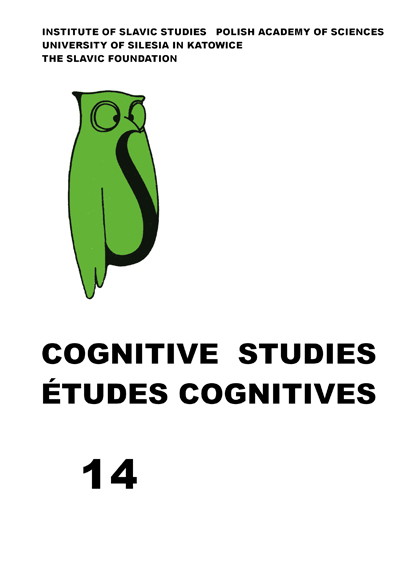The Impact of Direct Speech Framing Expressions on the Narrative
The Impact of Direct Speech Framing Expressions on the Narrative
Author(s): Jadwiga Linde-Usiekniewicz, Paulina NalewajkoSubject(s): Language and Literature Studies, Theoretical Linguistics, Studies of Literature, Comparative Study of Literature
Published by: Instytut Slawistyki Polskiej Akademii Nauk
Keywords: Gabriel García Márquez; direct speech framing expressions; pronouns; Relevance Theory; conceptual vs. procedural distinction
Summary/Abstract: This paper discusses an application of Relevance Theory methodology to an analysis of a literary text: a short story of Gabriel García Márquez “Buen viaje, señor Presidente” and its English translation. “Close reading” technique carried out on rather linguistic than literary basis allows for adding yet another layer of interpretation to this complex story. The analysis concentrates on the representation of direct speech and particularly on the impact of direct speech framing clauses on the reading of dialogic turns. Specifically, it is argued that the explicit mention of the addressee by indirect object pronouns (which are optional in direct speech framing turns) in Spanish makes the tension between the two protagonists even more palpable, therefore apparently courteous turns can be interpreted as defiant or otherwise antagonistic. In English similar role is played by the contrast between the absence of quotative inversion with subject pronouns and its presence when speakers are identified by full nominals. The parallel effect in both linguistic versions is traced to the distinction between linguistic items carrying mainly conceptual meaning (nominals) and carrying mainly procedural meaning (pronouns) and to the different ways these two kind of elements are processed in comprehension. The paper also provides some arguments for leaving aside literary considerations and treating a literary text as an act of ostensive communication.
Journal: Cognitive Studies | Études cognitives
- Issue Year: 2014
- Issue No: 14
- Page Range: 101-120
- Page Count: 20
- Language: English

